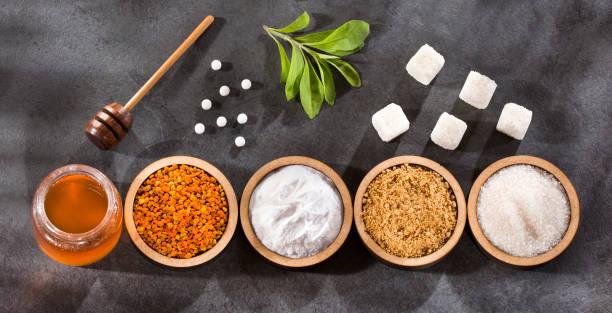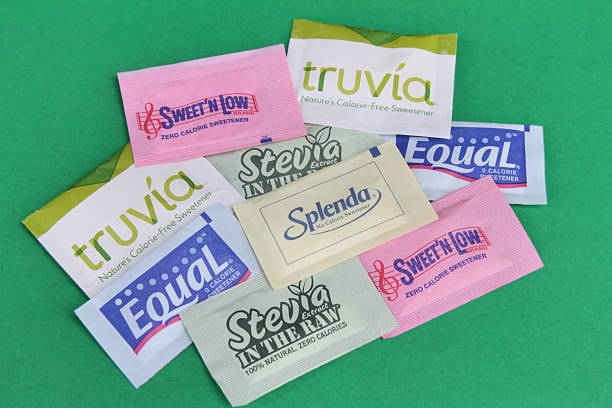Health, What to Eat and Drink
What Is The Sweetest Artificial Sweetener
At the same time that we are looking for healthy alternatives to sugar, artificial sweeteners have become increasingly popular. With these sugar replacements, we can satisfy our craving for sweetness without consuming any more calories. However, which one is the most delicious? Within the scope of this all-encompassing article, we will investigate the realm of artificial sweeteners and identify the sweetest options that are now accessible. Now is the time to get your preferred beverage and get ready to indulge in some sweets without feeling guilty!

Understanding Artificial Sweeteners
Chemical chemicals known as artificial sweeteners are added to foods and beverages in order to impart a sweet flavor to the food or beverage. In general, they are significantly sweeter than sugar, which means that a lower quantity is required to reach the same level of sweetness they provide. Because of this, they are a well-liked option among those who are attempting to lower their sugar consumption or better manage their weight.
There are numerous varieties of artificial sweeteners that can be purchased on the market, and each one possesses a distinct set of characteristics and a different degree of sweetness. Now that we have a better understanding of some of the most well-known ones, let’s find out which one is the most delicious in terms of sweetness.
1. Aspartame: The Versatile Sweetener
One of the artificial sweeteners that is used the most frequently is called aspartame. Due to the fact that it is approximately 200 times sweeter than sugar, it is a popular choice for products that are low in calories and do not contain sugar. Despite the fact that it does contain some calories, the amount that is utilized in beverages is so little that its contribution to the total number of calories is very low.
Because it is sensitive to heat and situations with higher pH levels, aspartame is frequently combined with other sweeteners. This is one of the reasons why it is used in confectionery. As a result of its effectiveness in beverage products with a pH ranging from 3 to 5, it is frequently used as a sweetener for soft drinks that fall within this range. It is possible to improve the flavor profile by combining it with other sweeteners such as saccharin, which results in a taste that is more balanced and reminiscent of sugar.
2. Saccharin: The Sugary Yet Bitter Sweetener
Additionally, saccharin, which is derived from the Greek word “saccharine” and means “sugary,” is an artificial sweetener that is frequently utilized in the production of food and beverages. The aftertaste might be described as harsh and metallic, particularly when it is present in large doses. However, it is approximately 400 times sweeter than sugar. It is common practice to combine saccharin with other sweeteners, such as aspartame, in order to increase stability and counteract the aftertaste that it produces.
Saccharin, when combined with aspartame, serves to lengthen the shelf life of the beverage, while aspartame contributes to a more balanced and sugar-like flavor throughout the beverage. This mixture makes it possible to get a sweetness that is more refined and pleasurable.
3. Sucralose: The Accidental Discovery
Sucralose, discovered by accident in the 1970s, is approximately 600 times sweeter than sugar. It gained commercial success due to its favorable taste, stability, and safety compared to other low-calorie sweeteners. Unlike some other sweeteners, sucralose is heat-stable and can withstand a broad range of pH conditions, making it suitable for products requiring a longer shelf life.
In beverages, sucralose is added in very small quantities due to its extreme sweetness. However, when processed with additional ingredients like glucose and maltodextrin, it takes on a granular appearance and a balanced sweetness that closely resembles sugar. This makes it a popular choice for those seeking a sugar-like experience without the calories.
4. Stevia: The Natural Sweetener
Stevia is an artificial sweetener derived from the Stevia rebaudiana plant. Its leaves are 150 times sweeter than sugar, and as an extract, stevia can be up to 300 times sweeter. While it may take a little longer to detect its sweetness compared to sugar, it is said to linger longer on the palate.
Stevia is heat-stable, pH-stable, and non-fermentable, making it a versatile additive in various types of drinks. With its natural origin, stevia has gained popularity among health-conscious individuals looking for a sugar substitute derived from plant sources.
5. Neotame: The Super Sweetener
Neotame, invented in the 1990s, is an artificial sweetener that packs an intense punch of sweetness. It is approximately 8,000 times sweeter than sugar, making it one of the sweetest options available. Due to its extreme sweetness, only a small amount of neotame is needed, which can help decrease production costs.
While neotame is comparable to aspartame in terms of stability, it is more sensitive to conditions of pH, moisture, and time. However, it can still be used in heated drinks and dairy products, providing a super sweet flavor without compromising on taste.

Safety and Usage Considerations
When it comes to artificial sweeteners, safety is a top concern. Regulatory and scientific authorities, such as the FDA, Health Canada, and the European Food Safety Authority, have extensively evaluated these sweeteners and deemed them safe for consumption at the currently permitted use levels.
It’s important to note that some individuals may have specific health conditions or sensitivities that require them to avoid certain artificial sweeteners. For example, people with phenylketonuria (PKU) should avoid or restrict aspartame due to difficulties in metabolizing phenylalanine.
It’s always recommended to consult with a healthcare professional or registered dietitian if you have any concerns or questions regarding the usage of artificial sweeteners.

Conclusion
Artificial sweeteners provide a world of options for those looking to satisfy their sweet tooth without the extra calories. However, it’s essential to do your research and find the sweetener that best suits your needs and preferences.
Remember, each sweetener has its own characteristics and taste profile, so experimentation may be necessary to find the perfect match for your palate. Whether it’s the versatility of aspartame, the natural origin of stevia, or the super sweetness of neotame, there’s an artificial sweetener out there to suit every taste.


